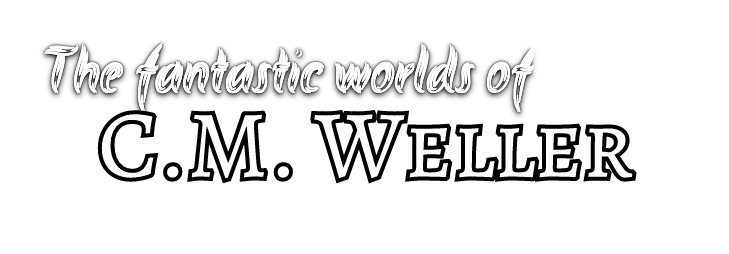How to Write a Story
Speaking of ideas, it’s occurred to me that I am slowly approaching having written three thousand individual tales. I’m likely to get there in 2021 if I’m doing math correctly.

Taking a break from saving the world, this week, mostly because I can't think of anything I've left out of my grand master plan to fix everything gone wrong with this sad and sorry world. If, of course, someone was daft enough to give me the firkin keys. If you have any ideas on what else needs fixing - do not hesitate to ask me about it. I always need new ideas.
Forewarning: this blog entry contains spoilers for The Adventure Zone, the Balance Arc [aka, the first 69 episodes of the podcast]
Speaking of ideas, it's occurred to me that I am slowly approaching having written three thousand individual tales. I'm likely to get there in 2021 if I'm doing math correctly.
So, I should walk you through my process. It might not be your process, and that's okay. This is a glimpse inside what passes for my thoughts.
Step One: Inspiration
I work with prompts given to me by my readers or any random troll off the interwebs. Sometimes, it is hard to tell. For the demonstration, I'm going to hit reload on a source of writing prompts care of Tumblr. [If you want to follow along, go here].
The muscular woman angrily reads tarot.Writing Prompts Bot
Of course, the one you get might not be this. I let that sit and absorb the words. I let my mind wander and procrastinate a little. Even Neil Gaiman says that 90% of writing is faffing around on the internet.
Step Two: The Pondering
So after a modicum of faffing about [two youtube videos, max] I seriously stare at the words and think about the world and the characters. Here, I have someone with a lot of muscles and, giving myself permission to fanfic if I so desire, my mind goes to The Adventure Zone: Balance Arc.
The muscular woman in this case is Julia Burnsides, as I headcannon her as a strong and capable blacksmith who can bench press Magnus or throw a hammer to kill a dire wolf at forty yards. She would be reading Magnus' fate and accidentally trip across her own. Furious that Governor Kalen is back on his bullshit.
Alternately, if I am not allowed to fanfic, I have a pet fantasy universe in my Unlikely Heroes series. The muscular woman could be Steelfoot, since she makes her own parts for her own devices. Of course she'd be muscular. As for the tarot she reads... it might be about someone she left behind, but still cares about. Someone getting into the kind of trouble that my motley crew could easily help with.
Step Three: Research
So I do not know crap about tarot. I'd have to take a deep dive into how to read tarot and maybe invent some symbolism as necessary. Though I'm pretty sure most of the arcana already present covers a lot of things.
I'm not actually writing a story, so I'm not doing that here. You can discover all the time sinks inherent in wiki walks and investigative trawling for nuggets of information that can be useful.
I usually go no further than finding the exact information I need. In this case, the spread and what it would mean. This gives me the illusion of being an expert, but I still don't know crap. If the topic at hand is deeply fascinating or I have to plough through a lot of gaff in order to catch my nuggets, the research is going to take a while.
I honestly try to get my Instant Stories out before lunchtime. That gives me the other half of the day for other nonsense. Nonsense like working on my novel, or writing blogs like this one.
Step Four: The Writing
All right this is where it gets fun.
You can only learn how to write by writing. You can't study a lot of writers and concoct a magic formula to create profit. That's not how it works. You set your scene, you build enough of the world to be a stage for your players, you may or may not add dialogue.
The thing is, even if you're following me on these steps, you're writing your story. Not mine.
My first story was written in second grade. It was from the perspective of a library book and I borrowed heavily from things I'd heard my mother say about the way kids treated literature. Compared to the things I write now... it was pretty crap. However, for a kid who was just learning to write, it wasn't that terrible.
Never, ever, compare yourself to the published writers. They've had years to work on this. I don't know where you are, but you're not there yet. Hell, I'm not there yet and I've been making up stories for most of my life.
So, you come up with a start. You work your way through what plot there is, who's got what to say, and what they're doing.
I usually try to end it on something snappy. There's also an option for a good pun if you can think of it. Of you like the edge zone, add a cliffhanger.
If you wrap everything up in a neat bow, then you can't write more of that world. Leaving things open for further adventures is always a good call.
Step Five: The Editing
It's inevitable, and every writer hates it. Read through your tale. Make certain the words you put in there were the words you meant to put there. Spell checkers don't catch everything.
Also make sure you haven't made any continuity errors and that you haven't made one character have an argument with themself. I mean, if you weren't actually writing that.
Once you're sure your opus is up to your best snuff, then there's the last step:
Step Six: Publishing
So you made a story, you got to show it off! Fortunately for you, there's more than a few places you can publish for free, but only one place that actively pays you for your contributions. It's all up to you.
If you don't want to earn anything, there's Wordpress, Tumblr, and sundry other story sites. Don't put your things in Inkitt, they steal your copyright. Same story with Amazon Kindle Direct.
Always read the terms and conditions, folks.
You find the one that suits you best. Go through the publishing procedure over there and share your beautiful creation with the world.
Be proud, you have made a thing.
Optional: Ignore the haters and learn how to do be

